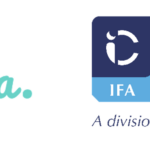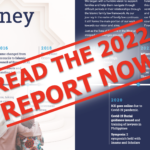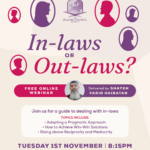By ICE – Islamic Finance Advisory and Consultancy: Shaykh Dr Sajid Umar, Umer Suleman and Zain Mahmood
This time last year four pints of Tesco Whole Milk cost £1.09; today the price has risen to £1.15, representing a 5.5% price increase for one of our daily essentials. Tesco Fusilli Pasta likewise cost £1 and is now £1.30 – a 30% increase year-on-year. Heinz Baked Beans and Kingsmill 50/50 bread cost 80p but now sell at £1 each – a price increase of 17.65% for both products.[1] This is just the tip of the iceberg, and these sentiments are mirrored in other daily staples as the UK grapples with the highest inflation rates in the last 30 years.[2]
The Bank of England has been tasked by the government to maintain an inflation rate of 2%, allowing businesses to plan their pricing and consumers to plan their spending. The inflation rate has not met this target since May 2021 for a variety of reasons, causing a knock-on effect on all segments of society that affects the most vulnerable of families the hardest. What are the reasons behind this increase in inflation? What are its latest causes? And what can we do about it? Let’s explore each question and their related topics, as well as possible solutions from an Islamic perspective below.
What is inflation and what causes it?
Inflation describes the process through which our money loses real value over time as the price of goods and services increases. The most prevalent type of inflation is a by-product of our interest-based economy, as each bank loan increases the money supply in the economy.[3] As the money supply grows, each unit of money – in our case a pound (£) – decreases in value. When interest rates are low, individuals and businesses tend to request more loans. Thus, low interest rates tend to result in more inflation. Conversely, high interest rates tend to result in a lower inflation rate.
In reality, this means that the purchasing power of our money is decreasing year-on-year. With a 5% inflation rate, groceries that cost £100 last year will cost £105 this year.
A year-on-year price increase can also be caused by other types of inflation, such as supply chain inflation, in which supply is unable to accommodate a surge in demand, as seen in the Covid-19 pandemic with supply bottlenecks affecting many different industries.
As affairs are starting to return to normal, we still see the effects of supply-chain inflation, such as the case of the used car market, with cars becoming more expensive than ever due to the supply of new cars being impeded following an ongoing semiconductor chip (a component used in almost every electronic device today) shortage. The good news is that TSMC, operating the leading semiconductor foundry that supplies most larger tech companies, have announced their plans to expand their chip making efforts with a new factory in Japan. However, the factory would not be up and running until late 2024, resulting in a forecast of continued shortage during 2022 and an expected moderate ease in supply chain tightness in a year or two.[4]
In addition to everything discussed thus far, there are other compounding factors leading to a hike in the cost-of-living hike, which include:
- Labour shortages resulting from Brexit and Covid-19 lockdowns/restrictions have caused many companies to lose a portion of their workforces.[5]
- The surge in energy prices as the energy price cap set by Ofgem (a limit to the amount energy companies can charge household consumers) soared by £693 from April 2022. As a result, these soaring energy prices have caused 29 energy suppliers to go bust, with others currently being squeezed.[6] This price cap will have its new limit take effect this April.
- In addition to the energy price increase, the increase in the number of people working from home has had a rippling effect on network providers for home broadband and mobile services. Virgin Media has announced millions of their customers will see their bills increase in March with price hikes of £56 a year on average.[7] BT are also following suit, increasing prices for 14 million of their customers by approximately £42 a year.[8]
What does the discussion around inflation mean for us today?
Inflation has a significant impact on government and business decisions, which, in turn, has a trickling impact all the way down onto the sphere of the general public. From a macro perspective, the Bank of England monitors the inflation rate and uses it to establish its interest rates. If they expect inflation to rise above 2% in the near future, they may increase interest rates in an attempt to subdue it. Or, if they expect inflation to drop below 2%, they may act to reduce interest rates. Consequently, and as an example, inflation has a critical effect on the price a person would pay for an interest-based mortgage. If interest rates go up in order to counter inflation, an individual looking to get a new mortgage will have to pay more interest than they would have if they had applied before the interest hike. Alternatively, if an individual is currently on a tracker mortgage, they can expect their monthly payments to go up.[9]
Consequently, as companies raise the prices for services used by every household, and the cost of staple foods in supermarkets increases, a higher living cost for families across the board, from utilities to the cost of travel, will naturally manifest. As an example, train fares are set to rise in March 2022, with petrol prices forecast to increase in tandem.[10]
When it comes to foodstuff, we curiously observe that companies are more willing to accept less profits on higher end products, with the brunt of the impact falling on cheaper household staples such as supermarket bread, milk, and rice. For example, upmarket ready meals cost around £7.50 and appear to stay steady, however essential foods see increases significantly higher than the inflation rate.
In turn, this means that the real cost of inflation for low-income families will be much higher than the announced 5%, and those who had a small amount of residual income, if any, may find themselves having to use this to pay for their bills.
To mitigate the harms of the current reality, pay rises have been discussed as a solution, and have been implemented in certain sectors; however, they are seemingly failing to keep up with the new costs of living. In the twelve months before November 2021, regular pay (excluding bonuses and adjusted for inflation) fell by 1%.[11]
No doubt, budgets will need to be tightened,
especially for those on fixed incomes such as pensions, and those on lower
incomes or living on a month-to-month basis. It also goes without mention that
families already struggling to maintain themselves will be impacted the most,
as the real cost of inflation affects the people with the least in society.
How would an Islamic Economy Mitigate Inflation?
1. The Prohibition of Fractional Reserve Banking
The primary benefit of an Islamic economy in contrast with the current economy in the UK is the lack of fractional reserve banking and the negative consequences entailed by it. Given that commercial banks have the legal right to create money for lending in interest-bearing loans, there is an incentive to maximise the amount of money created within the legal boundaries. Inflation distorts economic decision making in numerous ways and can cause economic activity to collapse.
2. The Prohibition of Interest
The absence of interest as a method to increase capital forces that capital to be invested into the real economy, thereby increasing production and restricting one of the causes of inflation. Consider how excess liquidity, rather than being lent to fund the purchase of items that are limited in supply and causing the price of those items to increase, could instead be used to increase production to meet supply, ensuring money is truly circulating in society and allowing many to benefit.
3. The Promotion of the Theory of ‘Supply and Demand’
Under an Islamic economy, goods and services would be subject to natural market conditions, being driven by supply and demand in their purest sense, without interest-based credit distorting every level of the supply chain. Whilst Islam promotes a laissez-faire approach to market regulation, placing no prohibition on growth or price controls, it balances this with intervention by protecting the fundamentals required to live (such as staple foods and by extension utilities) under extreme circumstances to protect the consumer from being taken advantage of.
4. The Prohibition of Harmful Monopolies
Monopolies, by their nature, lead to lack of competition through inhibiting innovation and quality, generally causing harm by driving prices upwards through restricting supply and leading to injustice. The Prophet Muhammad ﷺ clearly criticised this in the following hadiths:
- “Whoever withholds food [in order to raise its price] has certainly erred!“[12]
- “Whoever strives to increase the cost [of products] for Muslims, Allah, the Exalted, will seat him in the centre of the Fire on the Day of Resurrection.“[13]
- “What an evil person is the one who withholds! If Allah causes the prices to drop, he would be saddened, and if He causes them to climb, he would be excited.“[14]
5. The Maintenance of Wealth-creation as a Means as Opposed to a Goal
Adam Smith is recognised as the father of modern economics, but those who are familiar with his work will know he was primarily a professor of moral philosophy. There are various works on how Ibn Khaldūn in fact preceded Adam Smith in understanding economics through the lens of morality, which sits well within an Islamic framework. Islam strongly encourages wealth creation as means, rather than a goal in and of itself, and it is always constrained by strong social responsibility with interventions taking place in times of scarcity. Such that prosperity is maximised through an ethereal connection to what wealth can bring.
6. The Treatment of Zakāh as a Financial System as Opposed to Only Being a Religious Obligation
For many divine obligations, the wisdom and benefit behind them manifest at many levels, some known to us, and others for us to ponder over. Zakāh[15] undoubtedly directly supports the needy in society as well as supporting the position of Islam in society. In addition, considerations of how zakāh operates clearly indicate that it has a psychological impact on behaviour, as it is not extracted from profit or income, but rather, accumulated wealth. This in turn has a twofold effect: one of promoting investment rather than hoarding, but also in the calculation of stock. Zakāh being applied on the sale price acts to disincentivize artificially pushing prices up as a natural consequence, since increased prices of stock held would mean an increase in the amount of money required to pay the zakāh.
7. The Institutionalisation of Awqāf
Awqāf (Arabic for endowments, singular waqf) are a special kind of philanthropic deed in perpetuity, involving the donation of a sustainable asset that can produce a financial return or benefit, which then serves specific beneficiaries. The beauty of awqāf is its unrestricted nature vis-a-vis zakāh. Since awqāf utilise capital investment and then distribute the income/produce generated for social benefit, they can be set up to provide for the basic needs of people, thus acting as a counterweight to pure private supply of staple items, and thus price inelasticity operates over luxury goods and sector specific inflation impacts the wealthy rather than general society.
Islam’s Guidance on Dealing with the Current Situation:
The life of this world is one of varying challenges. The Qur’an describes it entirely as a test, and accordingly, we see it giving us days that are sometimes for us, and sometimes against us. The most important thing is that, despite its reality, we are never left without the means for guidance and hope, for we have the timeless miracle, the Qur’an, and the perfect example, the Sunnah of the Messenger ﷺ , as a persistent and constant calibrator of the compass of our thoughts, fears, and ways.
We have countless pieces of points of reassurance and inspiration from an Islamic perspective to help us through the current turbulence, some of which are shared below:
1. Our Provisions are Preordained, and not only Obtained
Whilst it is upon us to take the means towards obtaining our sustenance, it is fundamentally important that we never forget that the quantities of our sustenance were decreed and recorded fifty millennia before the creation of the heavens and the earth! Our actions only determine whether our destined provisions reach us in a permissible or impermissible manner.
Imam Muslim (رَحِمَهُ ٱللَّٰهُ) narrates a statement of ʿAbdullāh ibn ʿAmr ibn al-ʿĀṣ
(رضي الله عنه) in which he says, “I heard Allah’s Messenger ﷺ saying, ‘Allah ordained the measures [of provisions and all matters] of the creation fifty thousand years before He created the heavens and the earth’”. [16]
2. The Matters Pertaining to our Sustenance are Controlled in the Heavens
Allah ﷻ says:
وَفِي السَّمَاء رِزْقُكُمْ وَمَا تُوعَدُونَ
(And in heaven is your provision and also what you are being promised.)
al-Dhāriyāt, 22
The timeless guidance of the Qur’ān educates us that the matters pertaining to our sustenance will never ever be affected by events on earth, irrespective of how catastrophic they may be, for ultimately, our provisions are controlled in the heavens by the All-Powerful, Allah ﷻ, who sustains His creation from unimaginable sources.
Conforming to this timeless lesson, the Prophet ﷺ said, “The Holy Spirit (Jibrīl) has inspired to me that no soul will die until it has completed its appointed term and received its provision in full, so fear Allah and do not be desperate in seeking provision, and no one of you should be tempted to seek provision by means of committing sin if it is slow in coming to him, for that which is with Allah can only be attained by obeying Him.”[17]
3. Reconnect yourself with the name of Allah: al-Razzāq
Allah ﷻ is the perpetual Sustainer of His creation. In describing Himself, He says:
إِنَّ ٱللَّهَ هُوَ ٱلرَّزَّاقُ ذُو ٱلْقُوَّةِ ٱلْمَتِينُ
(Allah is the Provider, the Lord of Power, the Ever Mighty)
al-Dhāriyāt, 58
The proverbial saying “every cloud has a silver lining” is used to convey the notion that, no matter how difficult things might seem, there is always some good accompanying it. As Muslims on a journey building our paradise, we should use circumstances like the present to renew our relationship with Allah through His name al-Razzāq – the All-Provider – a name we seldom remember during times of ease and prosperity.
Allah ﷻ maintained us in the womb of our mothers, providing for us and sustaining us in a time when our parents could only make duʿā’ (supplication) for our healthy development. As we enter the world and grow into adults with their own jobs and responsibilities, we often forget that nothing has changed in this initial relationship with Allah ﷻ . He is not just the provider, but the one who perpetually provides perfectly and irrespective of circumstance. Just as He ﷻ was providing for us when we were in the wombs of our mothers, He does so at this very moment, and every moment after that. As Muslims, connecting and reconnecting with Allah ﷻ via this beautiful name reminds us that our Lord is the Lord of Power and Might. Nothing in existence can prevent His will from coming to be!
Allah ﷻ says:
قُلِ ٱللَّهُمَّ مَـٰلِكَ ٱلْمُلْكِ تُؤْتِى ٱلْمُلْكَ مَن تَشَآءُ وَتَنزِعُ ٱلْمُلْكَ مِمَّن تَشَآءُ وَتُعِزُّ مَن تَشَآءُ وَتُذِلُّ مَن تَشَآءُ ۖ بِيَدِكَ ٱلْخَيْرُ ۖ إِنَّكَ عَلَىٰ كُلِّ شَىْءٍ قَدِيرٌ
(Say, “O Allah, Owner of Sovereignty, You give sovereignty to whom You will and You take sovereignty away from whom You will. You honour whom You will and You humble whom You will. In Your hand1 is [all] good. Indeed, You are over all things competent.)
āl-ʿImrān, 26
4. Patience is Key
The life of this world entails a journey of toil and effort towards our Lord, one filled with tests in many shapes and forms that can be overcome by an act of worship known as patience!
The Qur’ān confirms this in the following verse:
وَلَـنَبۡلُوَنَّكُمۡ بِشَىۡءٍ مِّنَ الۡخَـوۡفِ وَالۡجُـوۡعِ وَنَقۡصٍ مِّنَ الۡاَمۡوَالِ وَالۡاَنۡفُسِ وَالثَّمَرٰتِ وَبَشِّرِ الصّٰبِرِيۡنَ
(Surely We will test you with a bit of fear and hunger, and loss in wealth and lives and fruits, and give good tidings to the patient.)
al-Baqarah, 155
Whilst some may see this verse as one imparting fear within our souls, it only aims to calibrate us upon a pragmatism that is synonymous with those who live a paradise-centric life. At the end of it all, the stark truth remains that we were created for paradise, and our time on earth are moments to build it, with our perpetual real-estate being connected to the state of our scales on the day of judgement.
Patience through trials and tribulation, irrespective of size, benefits the believer. Regarding this reality, the Prophet ﷺ said: “No fatigue, nor disease, nor sorrow, nor sadness, nor hurt, nor distress befalls a Muslim, even if it were the prick he receives from a thorn, but that Allah expiates some of his sins for that.”[18]
5. Take Care of the Commands of Allah, and Allah Will Take Care of Your Affairs in this Life and the Next
The Prophet ﷺ said, “Be mindful of Allah, and He will take care of you. Be mindful of Him, and you shall find Him at your side. If you ask, ask of Allah.”[19]
Earlier we covered verse 58 from al-Dhāriyāt and discussed its guidance towards never being fearful of our sustenance. Before this guidance though, Allāh ﷻ reveals to us a manifest, undeniable reality, in which He says:
وَمَا خَلَقْتُ الْجِنَّ وَالْإِنسَ إِلَّا لِيَعْبُدُونِ ﴿٥٦﴾ مَا أُرِيدُ مِنْهُم مِّن رِّزْقٍ وَمَا أُرِيدُ أَن يُطْعِمُونِ
(And I did not create the jinn and mankind except to worship Me. I do not want from them any provision (for themselves or the creation of Allah), nor do I want them to feed Me.)
al-Dhāriyāt 56-57
It is especially at these moments of hardship that we must afford ourselves the chance to take the necessary steps back and re-evaluate our relationship with Allah ﷻ, His worship, and our financial affairs.
Perhaps a better way of carrying out this re-evaluation would be for us to ask ourselves how much we develop our faith compared to our capital gains and profits during times of ease. If we turned over an additional profit of £50,000 for example, did we find that our īmān (faith) experienced an associated growth as well? The reality is that if our efforts for increased sustenance cause our prayers to become more rushed and our relationship with the book of Allah to become subdued, then we are truly suffering from inflation, albeit of a different nature. After all, what benefit is there in chasing the life of this world at the expense of the ever-lasting life of the hereafter?
6. Spend Smarter, not Harder
With regards to our personal expenses, we should strive to review our understanding of what constitutes “needs” and differentiate it from that which entails “wants”. Forgoing – at least in the short term – that which we normally want, yet do not need, in order to practically manage the increase in the cost of living is common-sense, and furthermore, stems from the guidance of Islam.
Let us recognise areas where we are unnecessarily spending more than we need to. While we would previously have takeout meals once a week, let us reduce it to twice a month and cook at home instead. Where we would have bought a new phone, let us buy a used one instead. Avoid confusing needs and wants: one personal tip is to work on delaying our gratification by delaying any purchases that we may feel are “needs” for at least 3 days, thereafter reviewing if the purchase is still necessary, or if it is a purchase that can be avoided – at least in the short term. We should also review our outgoing monthly bills and identify which services we don’t use or can do without.
Regarding the energy crisis, we can help lower the expected impact on our bills caused by inflation by educating our children and family members about the differences between wants and needs, as well as the benefits of turning off stand-by appliances, washing our laundry at lower temperatures, shortening our time in the shower, adjusting our fridge and freezer temperatures, using LED light bulbs, and other such strategies to reduce power consumption.
7. Smart Charity – Zakāh
As Muslims we have a duty of care towards our communities, especially as families delve into food and even fuel poverty due to price rises affecting people on zero-hour contracts, food bank clients and millions more.
Zakāh will be increasingly important in current times, as it eases the affairs of those most in need. The wealth that is the right of others in our pockets should not be withheld; rather, it should be given promptly to those that Allah ﷻ has ordained it for.
Allah ﷻ says:
اِنَّمَا الصَّدَقٰتُ لِلۡفُقَرَآءِ وَالۡمَسٰكِيۡنِ وَالۡعٰمِلِيۡنَ عَلَيۡهَا وَالۡمُؤَلَّـفَةِ قُلُوۡبُهُمۡ وَفِى الرِّقَابِ وَالۡغٰرِمِيۡنَ وَفِىۡ سَبِيۡلِ اللّٰهِ وَابۡنِ السَّبِيۡلِ فَرِيۡضَةً مِّنَ اللّٰهِ وَاللّٰهُ عَلِيۡمٌ حَكِيۡمٌ
(Zakāh expenditures are only for the poor and for the needy and for those employed for it and for bringing hearts together [for Islam] and for freeing captives [or slaves] and for those in debt and for the cause of Allah and for the [stranded] traveller – an obligation [imposed] by Allah. And Allah is Knowing and Wise.)
al-Tawbah, 60
In addition, we should be even more strategic and ensure that our zakāh has an allocation to those closer to us, especially during these times. While we don’t want to turn our backs on those in need far away, we should recognise that those who are walking amongst our own localities also qualify for zakāh.
Many are not aware that poverty is a much more common experience among Muslims than other religious groups in the UK. British Pakistanis, for example, are around three times as likely to be in poverty compared to their white British counterparts. According to a study by the Centre for Social Investigation, 50% of Muslim households are in poverty compared to the national average of 18%.[20]
Let us also not forget, that during times like these, it is a real possibility that those who may have been zakāh payers in the past may have crossed the threshold and qualify to receive zakāh today. Let us be diligent and recognise these realities, especially since many are too shy to ask for their financial rights which Allah has placed upon those who are financially able.
8. Duty to our Communities
وَّبِالۡوَالِدَيۡنِ اِحۡسَانًا وَّبِذِى الۡقُرۡبٰى وَالۡيَتٰمٰى وَ الۡمَسٰكِيۡنِ وَالۡجَـارِ ذِى الۡقُرۡبٰى وَالۡجَـارِ الۡجُـنُبِ
(Do good to your parents, to near of kin, to orphans, and to the needy, and to the neighbour who is of kin and to the neighbour who is a stranger)
al-Nisa, 36
Whilst zakāh is more restricted in terms of its recipients according to Sacred Law, let us not forget the universality of Islam and the importance of ṣadaqah, especially considering the mandates of the cited verse.[21]
Our communities have clear rights over us. The example the Prophet ﷺ set for us is one of deep care and concern for our neighbours. ʿĀ’ishah (رضي الله عنها) reported: The Messenger of Allah ﷺ said, “He is not a believer who spends the night satiated while the neighbour to his side is hungry.”[22]
If we have some excess, let us readily give ṣadaqah in its various forms. If we do not have that financial excess, then let us not forget that giving hope to others, giving them a lift to a destination, connecting them to those who may have an excess of wealth to share, and other similar acts, are all forms of ṣadaqah.
9. Qarḍ Ḥasan Loans
مَنۡ ذَا الَّذِىۡ يُقۡرِضُ اللّٰهَ قَرۡضًا حَسَنًا فَيُضٰعِفَهٗ لَهٗ وَلَهٗۤ اَجۡرٌ كَرِيۡمٌ
(Who is there to advance a loan, a good loan, to Allah so that He multiplies it for him, and he may have a noble reward?)
al-Ḥadīd 11
Qarḍ ḥasan is a loan extended on a goodwill basis mainly for welfare purposes with no interest as a part of the transaction. It is a means of great rewards in this life and the next, and a form of ṣadaqah.
In the event that we do have some restricted excess funds, such that we do not need to use those funds now, but definitely in the near future, we should explore passing it on – after due diligence – to those who need short-term liquidity.
Allah ﷻ, not man, is the absolute owner of wealth and entrusts it to us to fulfil our role in worshipping Him. What better use for our wealth than to attain the pleasure of Allah ﷻ?
10. Have Mercy on Others and Allah ﷻ Will Have Mercy on You
For those who are owed money, purposely work on facilitating the event by making payment terms on others as easy as possible. Your understanding, especially during these difficult times is yet another form of ṣadaqah and a means of gaining much needed blessings upon your available wealth.
ʿAbdullāh ibn ‘Amr (رضي الله عنه) reported: The Messenger of Allah ﷺ said, “The merciful will be shown mercy by the Most Merciful. Be merciful to those on the earth and the One in the heavens will have mercy upon you.”[23]
[1] Price increases were calculated using Wayback Machine, an internet archive, to compare Tesco’s current prices to their website prices a year ago.
[2] BBC. What is the UK’s inflation rate and why is the cost of living going up? Accessed 07 Feb 2022. Available at: https://www.bbc.co.uk/news/business-12196322
[3] Read more about fractional reserve banking at https://corporatefinanceinstitute.com/resources/knowledge/finance/fractional-banking/
[4] Reuters. TSMC to build new chip factory in Taiwan’s southern city amid shortage. Accessed 05 Feb 2022. Available at: https://www.reuters.com/technology/tsmc-build-new-chip-factory-taiwans-southern-city-amid-shortage-2021-11-09/
[5] Independent. UK job vacancies surge to record high 2.7 million as labour shortage worsens. Accessed 05 Feb 2022. Available at: https://www.independent.co.uk/news/business/job-vacancies-labour-shortage-b1956832.html
[6] Evening Standard. Which UK energy suppliers have gone bust? Accessed 05 Feb 2022. Available at: https://www.standard.co.uk/esmoney/bust-energy-suppliers-b958705.html
[7] MoneySavingExpert. Millions of Virgin Media customers to be hit by £56/yr price hike – but here’s how you can beat the rise. Accessed 05 Feb 2022. Available at: https://www.moneysavingexpert.com/news/2022/01/virgin-media-is-hiking-its-prices-to-p56-per-year—here-s-what-/
[8] BBC. BT to introduce inflation-busting price rises. Accessed 05 Feb 2022. Available at: https://www.bbc.co.uk/news/business-60057282
[9] This paragraph has been shared only as an example to help generate greater clarity. From an Islamic perspective, Interest-based Mortgages are considered Haram (forbidden). For more on this, please refer to the following presentation: https://online.iceurope.org/home-ownership.
[10] Metro. How much do TfL monthly travel cards cost? Accessed 05 Feb 2022. Available at: https://metro.co.uk/2022/01/31/tfl-prices-2022-how-much-are-london-monthly-travel-cards-now-16008487/
BBC. Price inflation: The heat is on. Accessed 05 Feb 2022. Available at: https://www.bbc.co.uk/news/uk-scotland-scotland-business-60238965
[11] BBC. Pay rises fail to keep up with the cost of living. Accessed 05 Feb 2022. Available at: https://www.bbc.co.uk/news/business-60035312
[12] Muslim.
[13] Aḥmad, 20313.
[14] Al-Bayhaqī, 10702.
[15] An annual alms-tax on Muslims.
[16] Sahih Muslim, 2653.
[17] Narrated by Abū Nuʿaym in Al-Ḥilyah from the hadith of Abū Umāmah ; classed as ṣaḥīḥ by al-Albānī in Ṣaḥīḥ al-Jāmi’, 2085.
[18] Bukhārī, 5641.
[19] Reported by Tirmidhī from Abū al-ʿAbbās ʿAbdullāh ibn ʿAbbās .
[20] How can we explain the high Muslim levels of poverty? Accessed 07 Feb 2022. Available at: http://csi.nuff.ox.ac.uk/?p=270#:~:text=Poverty%20is%20a%20much%20more,collected%20between%202009%20and%202011).
[21] Ṣadaqah refers to the act of giving voluntary charity, as opposed to zakāh which is obligatory.
[22] Reported in al-Adab al-Mufrad from ʿAbdullāh ibn ʿAbbās .
[23] Tirmidhī, 1924.













